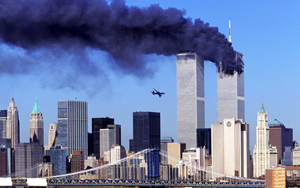Riyadh, Sep 30: Saudi Arabia has warned of "disastrous consequences" from a United States law allowing 9/11 victims to sue the kingdom, in a major spike in tension between the longstanding allies.
 The warning came yesterday after the US Congress voted overwhelmingly on Wednesday to override President Barack Obama's veto of the Justice Against Sponsors of Terrorism Act (JASTA) on relations between states.
The warning came yesterday after the US Congress voted overwhelmingly on Wednesday to override President Barack Obama's veto of the Justice Against Sponsors of Terrorism Act (JASTA) on relations between states.
JASTA allows attack survivors and relatives of terrorism victims to pursue cases against foreign governments in US federal court and to demand compensation if such governments are proven to bear some responsibility for attacks on US soil.
A Saudi foreign ministry source yesterday called on the US Congress "to take the necessary measures to counter the disastrous and dangerous consequences" of the law.
The unnamed spokesman, cited by the official Saudi Press Agency, said the law is "a source of great worry."
This law "weakens the immunity of states", and will have a negative impact on all countries "including the United States," the Saudi spokesman said, expressing hope that "wisdom will prevail."
In opposing the law, Obama said it would harm US interests by undermining the principle of sovereign immunity, opening up the US to private lawsuits over its military missions abroad.
The erosion of sovereign immunity is also a concern among the six-nation Gulf Cooperation Council, of which Saudi Arabia is the most powerful member. Saudi Arabia's Gulf allies have lined up beside Riyadh to criticise the law.
Analysts earlier yesterday warned that Saudi Arabia could reduce valuable security and intelligence cooperation with longstanding ally Washington after the Congressional "stab in the back."
Cutting such cooperation is among the options available to Riyadh, the analysts said.
"I'm afraid that this bill will have dire strategic implications" for the United States, Salman al-Ansari, head of the Saudi American Public Relation Affairs Committee (SAPRAC), told AFP.
"This partnership has helped provide US authorities with accurate intelligence information" that helped stopped attacks, said Ansari, whose committee is a private initiative to strengthen Saudi-US ties.
Riyadh and Washington have a decades-old relationship based on the exchange of American security for Saudi oil.
Saudi Arabia was home to 15 of the 19 Al-Qaeda hijackers who carried out the September 11, 2001 attacks on the United States which killed nearly 3,000 people.
Riyadh denies any ties to the plotters. Ties between Riyadh and Washington became increasingly frayed under Obama, but analysts said security cooperation and intelligence sharing remained solid.





Comments
Naser , No doubt its clear the Js did it.
watch in YT
Firefighters, Architects & Engineers for 9-11 Truth\ - Richard Gage, AIA - April 6th, 2016"
Its law of jungle adapted by the united states. Its really laughable to accuse saudi arabia or any nation for some of the its citizen are accused . First of all still 911 incident is doubted as who has done it.
Add new comment